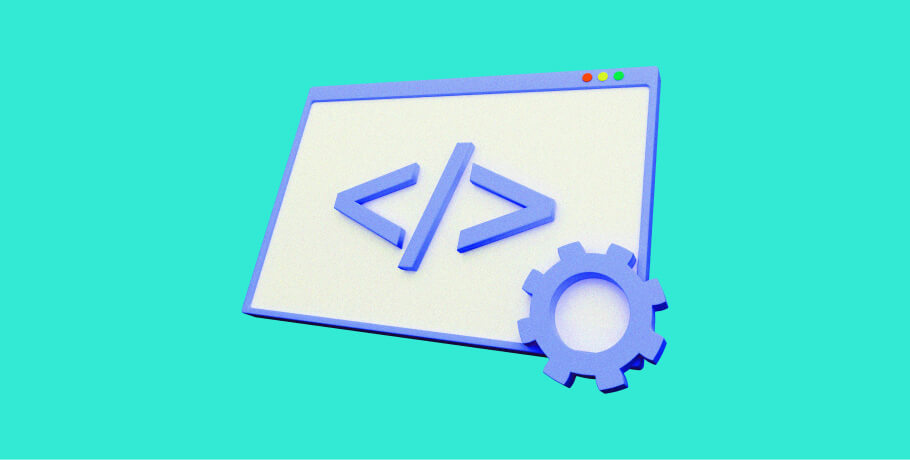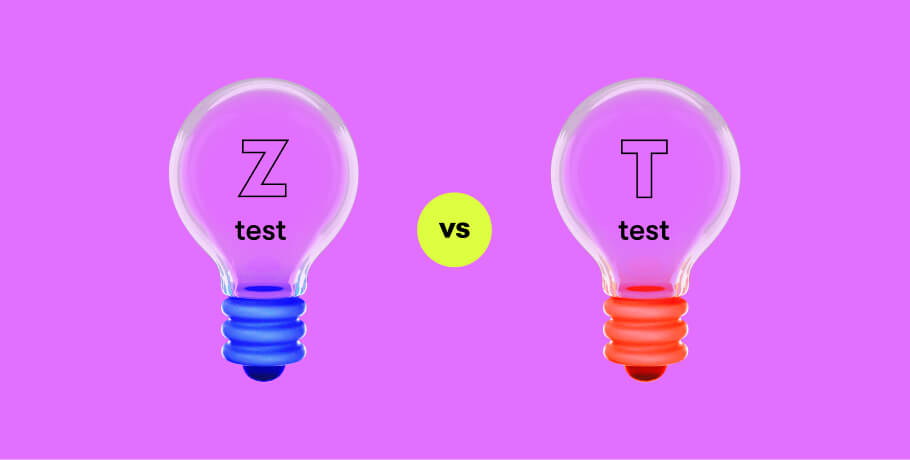The software engineering sphere is experiencing a seismic shift driven by the rapidly advancing artificial intelligence landscape. As the tech world evolves, senior software engineers are growing in demand, creating exciting opportunities and career paths for aspiring professionals.
However, a junior developer must go through several software engineering levels to become a senior software engineer skills and developer. To help you with the process, we've crafted a step-by-step guide on how to be a senior software engineer, the relevant steps to become a senior software engineer, and the required qualifications.
Further in the blog, we'll answer the question of how many years you need to reach the senior software engineering level and how many years of experience it takes to become a senior software engineer, as well as understand the difference between various senior software engineering roles. Let's jump right in!
make your way up!
Get the support to achieve career heights in tech. Send your CV and our team will find a perfect job-match for your leadership skills.
What is a senior software engineer?
Before we delve into how to secure a senior software engineer remote job, let's discuss the basics. A senior developer role comes with recognizing your expertise and growing experience with several changes to your daily programming tasks.
Typically, a senior software engineer oversees a team of junior software engineers and drives efforts to build robust software architecture for a wide range of projects. In addition, these individuals have excellent problem-solving skills, are team players, and excel at communicating with their team and other companies.
Furthermore, senior software engineers may collect user data to offer insights into improving the user experience and brainstorm scalable tech solutions.
What do senior software engineers do?
Professionals in senior software developer roles are pivotal in the software development lifecycle, leveraging their extensive expertise to contribute significantly to various critical aspects of the process. These individuals provide mentorship and project management expertise to supervise collaboration processes throughout the software development lifecycle.
Moreover, the job position of a senior software engineer implies reviewing and debugging code and directing software development projects to ensure tech companies are up-to-date with the latest technologies. Besides this job, senior developers may have the following job responsibilities:
- Establish, manage, and oversee processes for new or existing software projects and documentation.
- Design the software engineering project's long-term vision and strategy.
- Research development trends, changes in tech solutions, and user needs.
- Collaborate with team members and different companies on innovative product ideas or services.
Requirements for becoming a senior software engineer
Junior software engineers and engineers aspiring to become senior software developers must fulfill essential experience and expertise criteria to reach their goals in the tech industry. This includes demonstrating proficiency, acquiring knowledge, and gaining practical experience in various skills and competencies that are fundamental for achieving the senior role.
In addition, aspiring software engineers for senior positions must boast advanced technical skills, excel in project management, and demonstrate strong teamwork skills. Here are the most critical skill requirements to achieve this role:
- A bachelor's degree: To meet the minimum educational requirements for a senior developer role, individuals must gain a bachelor's degree in computer science or software engineering. Some employers may encourage engineers to take courses to stay up-to-date with the latest technologies or earn a master's degree.
- Several years of experience: An entry-level software engineer seeking to advance to a senior-level role must gain up to five years of experience as a junior and mid-level software engineer. While climbing the corporate ladder, you can increase and polish your skills.
- Your industry knowledge: Senior software engineers oversee a team of learning engineers. They focus on various aspects of software development projects. Thus, you must exhaustively understand how tech works and have the certifications to prove your expertise.
Once you have intimate knowledge of the mechanisms for transforming ideas into products, you're ready to take on the senior-level role.
A step-by-step guide: how to become a senior software engineer
Step # 1: Create a roadmap
A roadmap, or a career development plan, is a fantastic way to set actionable and achievable goals, allowing you to stay flexible while working towards your dreams. Whether you're aiming for an internal promotion or seeking a new senior software engineer role in different companies, consider planning your future.
So, how do you start? The first step is to learn about your organization's performance review date and set it as your deadline. Next, think of goals, achievements, and certifications you can complete during this period to strengthen your profile. For instance, you may plan to mentor a junior member of your company or team, put forward innovative ideas, or showcase your skills during decision-making.
That way, when it's the performance review season, you can discuss your aspirations and highlight ways you've contributed to the company's growth. On the contrary, if you want to transition to a new job, you can add these achievements to a good portfolio and build a stunning resume highlighting your expertise, experience, and educational background.
Step # 2: Develop your technical skills
There's no better way to stand out during an interview than by developing your software engineering expertise. You must enhance your soft and technical skills as an aspiring senior software engineer.
Since there are endless areas to expand your knowledge, the best solution is to focus on the areas relevant to your desired engineering role. For instance, you can work with mentors to grow your understanding of their workflow and collaborative skills.
Moreover, you should practice core technical skills, such as developing software, understanding its architecture, and debugging programs. The latter allows you to polish your expertise and ensure you're up-to-date with the latest technologies and tools.
Individuals seeking a senior-level role may benefit from growing their soft skills, including streamlining communication, accepting and providing constructive criticism, being flexible, keeping discussions rational, and showcasing a willingness to learn from others.
You can achieve this by setting personal goals, seeking feedback from your superiors, and giving presentations. Expanding your skillset showcases your passion and commitment and will capture prospective employers and hiring managers.
Step # 3: Get the relevant experience
Gaining relevant experience is a pivotal step toward becoming a senior software engineer. This involves actively engaging in real-world projects that align with your career aspirations. Whether you're developing software applications, tackling genuine challenges, or contributing to open-source initiatives, each experience contributes significantly to your growth as a professional.
Helping out with open-source projects is a great way to move up in your job and get noticed by your coworkers. When you work on open-source projects, you can meet people from different backgrounds and solve problems that happen in the real world. On GitHub or GitLab, look at projects that interest you to start. You can help by starting your own projects, fixing problems, adding new features, and improving the directions.
Hackathons are one-of-a-kind events that help people learn quickly and work together. People working as developers, managers, or in other fields often get together at these events to work on challenging projects in one to seven days. While at a hackathon, you can try new things, solve problems in fresh ways, and show how creative and intelligent you are at doing things.
Step # 4: Improve teamwork techniques
Improving teamwork techniques is pivotal for advancing to a senior software engineering role. This involves refining communication strategies to ensure clarity and alignment among team members regarding project goals, timelines, and expectations. Active listening plays a crucial role in understanding diverse perspectives, fostering collaboration, and strengthening relationships within the team.
Embracing collaborative decision-making encourages input from all stakeholders, leading to informed decisions that resonate with the team's vision. Conflict resolution skills are essential for addressing challenges constructively and maintaining a positive team dynamic. Building trust through reliability, transparency, and accountability fosters a cohesive and supportive team environment.
Empathy and effective delegation further contribute to team cohesion and productivity. Mastering these teamwork techniques enhances individual effectiveness and contributes to the overall success of projects and team outcomes.
Step # 5: Talk with your managers and team leads
Engaging in regular and meaningful conversations with your managers and team leads is a crucial step in your journey toward becoming a senior software engineer. These discussions provide valuable opportunities to align your goals with the team's objectives, seek feedback on your performance, and discuss career development strategies.
Setting clear objectives and agenda items during these conversations is essential to ensure the discussion remains focused and productive. Seek constructive feedback on your work, projects, and contributions to the team. This feedback can offer valuable insights into areas where you excel and areas that require improvement.
Use these conversations to discuss your career aspirations, growth opportunities within the organization, and any challenges or obstacles you may be facing. Your managers and team leads can provide guidance, support, and mentorship to help you navigate these challenges and reach your career goals.
Furthermore, keep your managers and team leads updated on your progress, achievements, and any initiatives you're working on. This showcases your dedication and commitment and helps them understand your contributions to the team and the organization as a whole.
What skills does a senior software developer need?
A top senior software engineer requires diverse skills to excel in their role. Here are some essential skills:
Communication
Effective communication is a cornerstone skill for senior software developers. They excel in understanding complex technical concepts and articulating these ideas clearly and concisely to diverse audiences. This skill extends to written communication, where senior developers can create documentation, reports, and technical specifications easily understandable by team members, stakeholders, and clients.
Clear communication fosters team collaboration, ensures everyone is on the same page regarding project objectives and requirements, and facilitates problem-solving and decision-making.
Programming expertise
Senior software developers possess a high level of proficiency in programming languages, frameworks, and software development best practices. They deeply understand coding principles, algorithms, data structures, and design patterns. This expertise allows them to architect and develop scalable, maintainable and efficient software solutions. Senior developers stay updated with the latest technologies and trends in the industry, continuously learning and refining their programming skills to deliver high-quality software products.
Teamwork
Collaboration is fundamental for senior software developers, who often work in multidisciplinary teams. They actively engage with team members, share their expertise, and contribute to collective problem-solving. Senior developers demonstrate strong interpersonal skills, respect diverse viewpoints, and foster a positive team environment. They understand the importance of effective communication, task delegation, and supporting team members to achieve common goals. Senior developers enhance productivity, creativity, and overall project success by working collaboratively.
Attention to detail
Senior developers focus on detail to ensure software reliability. They review code and plan testing for bug fixes. They pay attention to requirements, design, and planning stages. Monitoring the process closely reduces risks and enhances quality. This builds trust with partners and users, benefiting the team's reputation.
Senior developers improve development processes by identifying areas for enhancement and implementing solutions. They assess the effectiveness of new methodologies or tools. This proactive approach streamlines workflows and fosters innovation. They also share knowledge through workshops, empowering colleagues and promoting a culture of learning.
Work environment
Senior software developers thrive in dynamic environments where they can adapt quickly to changing requirements, priorities, and deadlines. Their proactive approach involves actively seeking learning opportunities to stay updated on emerging technologies, which ultimately contributes to their team's and the organization's success.
In addition to their adaptability and resilience, senior developers play a crucial role in fostering team collaboration. They engage with team members, providing guidance and mentorship to support their growth and development. By promoting knowledge sharing and cross-functional cooperation, senior developers create an environment where ideas can flourish and innovation can thrive.
Furthermore, senior developers contribute significantly to the development processes within their teams. They ensure efficiency and quality by actively participating in establishing and improving development workflows and practices. Their leadership qualities, such as empathy and professionalism, inspire trust and cohesion among team members, creating a supportive and productive work environment.
Conclusion
Becoming a senior software engineer demands dedication, perseverance, and continuous learning. It requires expanding knowledge, refining skills, and overcoming challenges. Senior engineers are lifelong learners who embrace new opportunities. They update technical skills, gain practical experience, and master soft skills like communication and leadership.
FAQ

The EPAM Anywhere Editorial Team is an international collective of senior software engineers, managers and communications professionals who create, review and share their insights on technology, career, remote work, and the daily life here at Anywhere.
The EPAM Anywhere Editorial Team is an international collective of senior software engineers, managers and communications professionals who create, review and share their insights on technology, career, remote work, and the daily life here at Anywhere.
Explore our Editorial Policy to learn more about our standards for content creation.
read more






















